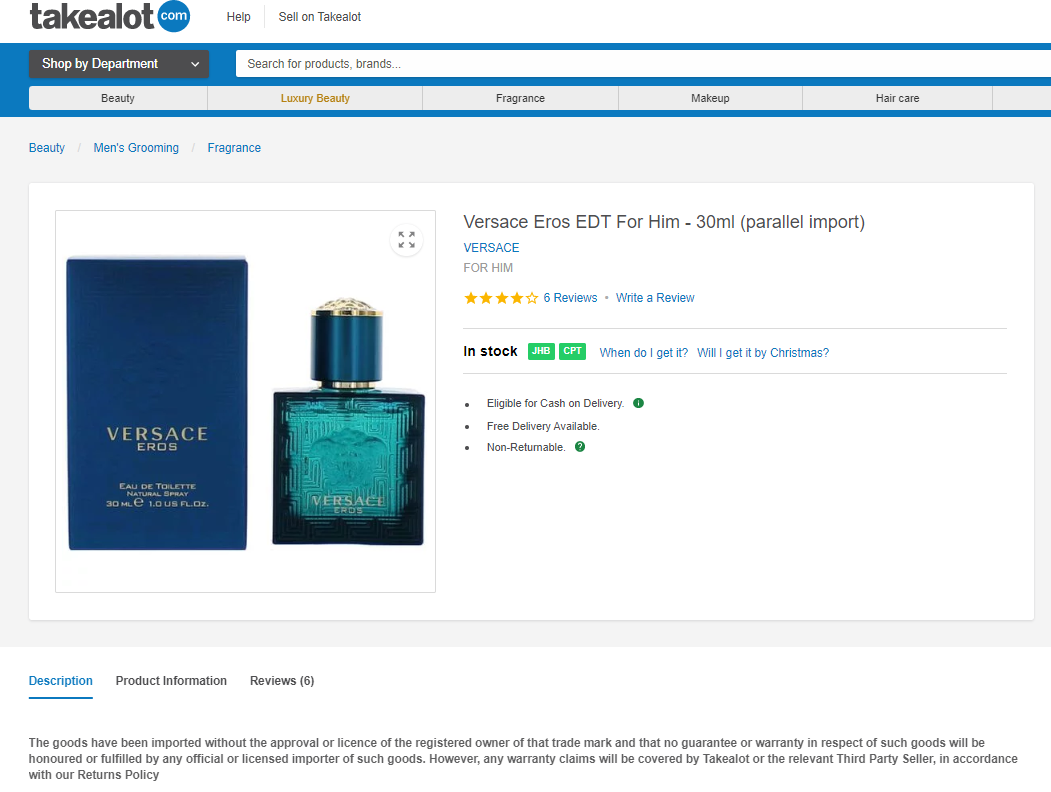Are you ready for Black Friday?

29 Nov 2019
With the #BlackFriday craze coming up, so does the issue of “grey goods”. This article aims to discuss the legality behind parallel importation and the sale of grey goods.
What is “parallel importation” and so-called “grey goods”?
Parallel importation can be defined as the act of importing and trading in “grey goods”. Grey goods are genuine goods that are sold without the original manufacturer’s knowledge or consent.
An example of how parallel importation typically takes place can be painted-out as follows:
Mrs X travels to the UK and finds that Apple iPhones are sold for R10 000, whilst the retail price in South Africa ranges between R20 000 and R35 000. Mrs X then decides to purchase iPhones in the UK to re-sell in South Africa for R15 000 thereby turning a handsome profit. Whilst grey goods can be purchased for a cheaper price, they are not typically covered by the original manufacturer’s guarantees and/or warranties.
Are “grey goods” legal?
Believe it or not, grey goods are not counterfeit goods and are legally permissible, provided that they comply with, inter alia, the following laws:
Consumer Protection Act
Section 25(2) of the Consumer Protection Act (‘the CPA’) requires a person who markets grey goods to apply a “conspicuous notice” on those goods in the following prescribed manner and form:
1.The notice must be written in an easily legible size, where the supplier expressly draws to the consumer’s attention that the goods:
1.1 have been imported without the approval or license of the registered owner of the trade mark embossed on the goods; and
1.2. that no guarantee or warranty will be honoured or fulfilled by any authorised importer of such goods.
2. The notice must be applied on the goods themselves (including the marketing material of the goods) where a consumer is likely to see that notice. An example of a “conspicuous notice” is depicted below:
Trade Marks Act
Goods that bear a registered trade mark and which have been altered or interfered with cannot be defined as grey goods as they are no longer genuine goods, in the strict sense. Considering that these altered goods are no longer genuine, the importation and sale of these goods would not be permissible under our law as they would fall within what is considered to be trade mark infringement.
Of course, the position changes if such goods have not been altered, changed or interfered with, as such grey goods would be deemed to be genuine and the sale of such goods would accordingly not constitute trade mark infringement.
Conclusion
When a bargain looks too good to be true, take a closer look to establish whether the product you intend purchasing is defined as a “parallel import” or “grey good”, to make a value judgement on whether it is still worth purchasing, despite having the lack of after sale service support, guarantees and/or warranties by the local authorized distributor.
See also:
Proposed amendments to the VAT regulations on the supply of electronic services in South Africa
(This article is provided for informational purposes only and not for the purpose of providing legal advice. For more information on the topic, please contact the author/s or the relevant provider.)

